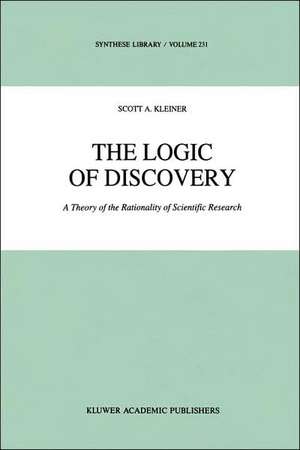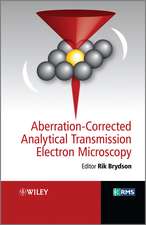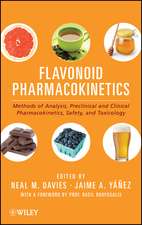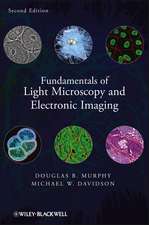The Logic of Discovery: A Theory of the Rationality of Scientific Research: Synthese Library, cartea 231
Autor S. Kleineren Limba Engleză Hardback – 31 iul 1993
This book is written to be accessible to advanced students in philosophy and to the scientific community. It is of interest to philosophers of science, philosophers of biology, historians of physics, and historians of biology.
| Toate formatele și edițiile | Preț | Express |
|---|---|---|
| Paperback (1) | 948.16 lei 6-8 săpt. | |
| SPRINGER NETHERLANDS – 6 dec 2010 | 948.16 lei 6-8 săpt. | |
| Hardback (1) | 953.52 lei 6-8 săpt. | |
| SPRINGER NETHERLANDS – 31 iul 1993 | 953.52 lei 6-8 săpt. |
Din seria Synthese Library
- 15%
 Preț: 638.43 lei
Preț: 638.43 lei - 18%
 Preț: 989.98 lei
Preț: 989.98 lei - 15%
 Preț: 596.69 lei
Preț: 596.69 lei - 18%
 Preț: 903.93 lei
Preț: 903.93 lei - 15%
 Preț: 586.88 lei
Preț: 586.88 lei - 15%
 Preț: 696.50 lei
Preț: 696.50 lei - 18%
 Preț: 892.90 lei
Preț: 892.90 lei - 15%
 Preț: 643.34 lei
Preț: 643.34 lei -
 Preț: 282.33 lei
Preț: 282.33 lei - 5%
 Preț: 372.19 lei
Preț: 372.19 lei -
 Preț: 443.10 lei
Preț: 443.10 lei - 15%
 Preț: 637.59 lei
Preț: 637.59 lei - 18%
 Preț: 958.88 lei
Preț: 958.88 lei - 15%
 Preț: 642.36 lei
Preț: 642.36 lei - 18%
 Preț: 1230.66 lei
Preț: 1230.66 lei - 15%
 Preț: 642.83 lei
Preț: 642.83 lei - 18%
 Preț: 1000.39 lei
Preț: 1000.39 lei -
 Preț: 389.70 lei
Preț: 389.70 lei - 15%
 Preț: 637.28 lei
Preț: 637.28 lei - 18%
 Preț: 952.26 lei
Preț: 952.26 lei - 18%
 Preț: 1231.32 lei
Preț: 1231.32 lei - 15%
 Preț: 645.96 lei
Preț: 645.96 lei -
 Preț: 395.85 lei
Preț: 395.85 lei -
 Preț: 400.47 lei
Preț: 400.47 lei - 18%
 Preț: 1225.48 lei
Preț: 1225.48 lei - 15%
 Preț: 638.89 lei
Preț: 638.89 lei - 18%
 Preț: 1232.09 lei
Preț: 1232.09 lei -
 Preț: 380.45 lei
Preț: 380.45 lei -
 Preț: 394.87 lei
Preț: 394.87 lei - 15%
 Preț: 640.37 lei
Preț: 640.37 lei - 15%
 Preț: 639.08 lei
Preț: 639.08 lei -
 Preț: 381.98 lei
Preț: 381.98 lei - 15%
 Preț: 643.00 lei
Preț: 643.00 lei - 15%
 Preț: 672.29 lei
Preț: 672.29 lei
Preț: 953.52 lei
Preț vechi: 1162.82 lei
-18% Nou
Puncte Express: 1430
Preț estimativ în valută:
182.48€ • 190.27$ • 151.66£
182.48€ • 190.27$ • 151.66£
Carte tipărită la comandă
Livrare economică 21 martie-04 aprilie
Preluare comenzi: 021 569.72.76
Specificații
ISBN-13: 9780792323716
ISBN-10: 0792323718
Pagini: 340
Ilustrații: XII, 340 p.
Dimensiuni: 216 x 279 x 24 mm
Greutate: 0.68 kg
Ediția:1993
Editura: SPRINGER NETHERLANDS
Colecția Springer
Seria Synthese Library
Locul publicării:Dordrecht, Netherlands
ISBN-10: 0792323718
Pagini: 340
Ilustrații: XII, 340 p.
Dimensiuni: 216 x 279 x 24 mm
Greutate: 0.68 kg
Ediția:1993
Editura: SPRINGER NETHERLANDS
Colecția Springer
Seria Synthese Library
Locul publicării:Dordrecht, Netherlands
Public țintă
ResearchCuprins
1 Introduction.- 2 Scientific Inquiry.- 3 Erotetic Logic and Scientific Questions.- 4 A Methodology for Problem Choice.- 5 The Pursuit of Questions.- 6 The Heuristic Character of Traditional Scientific Methods.- 7 Summary and Conclusions.- References.






